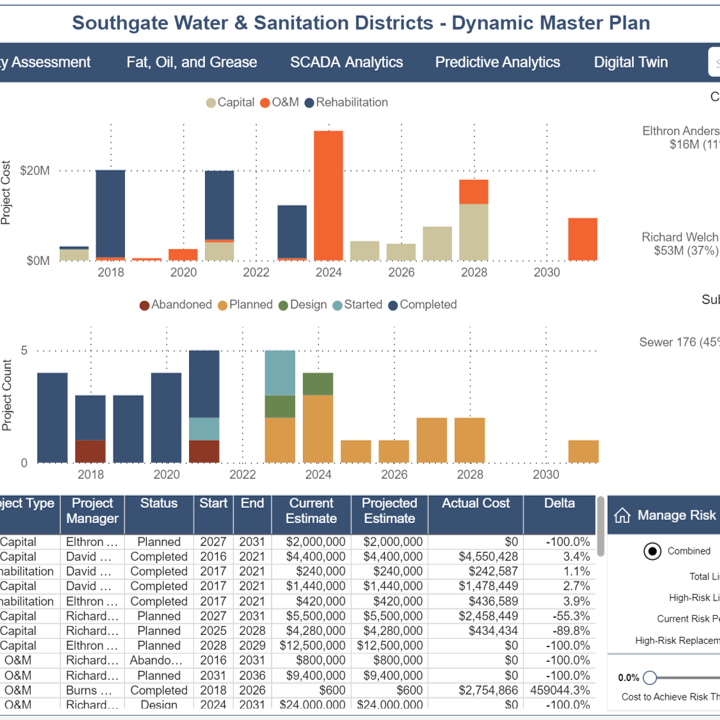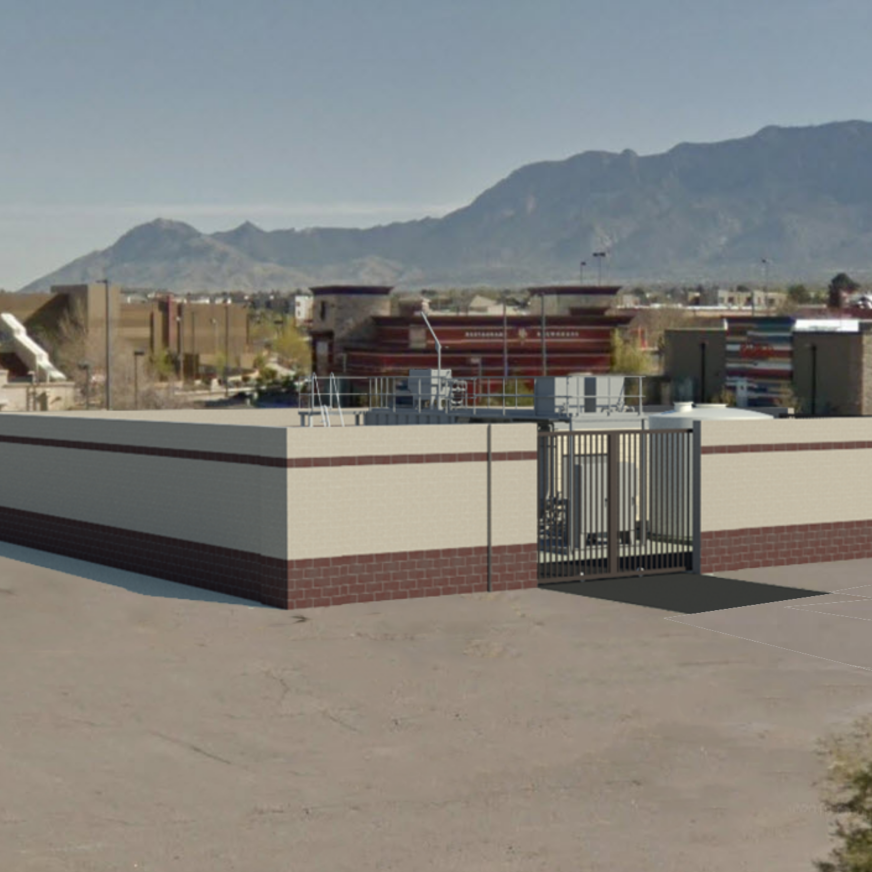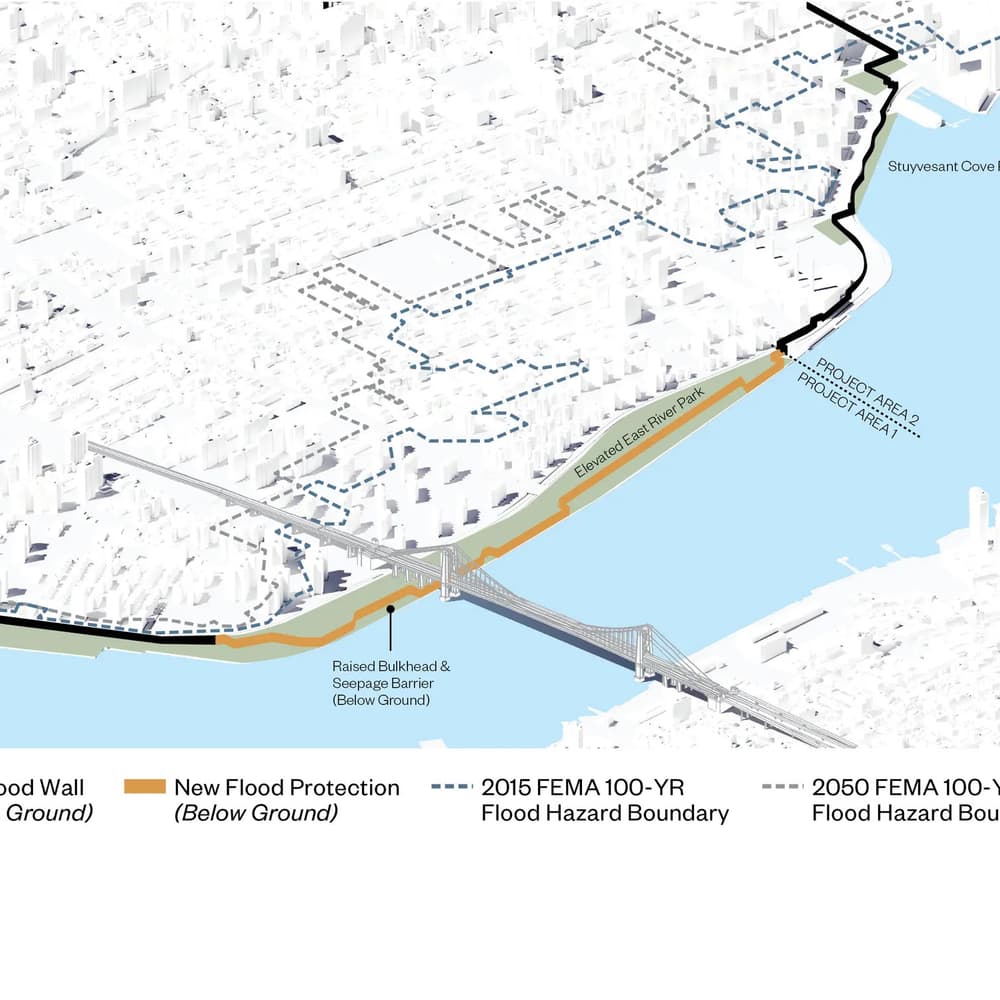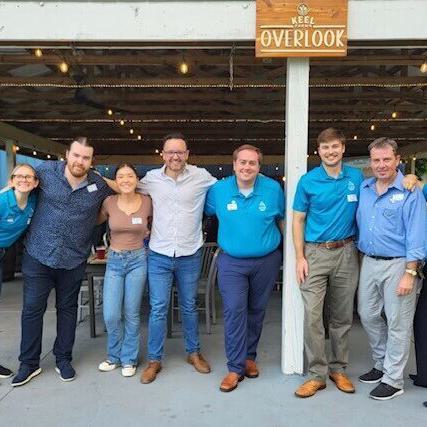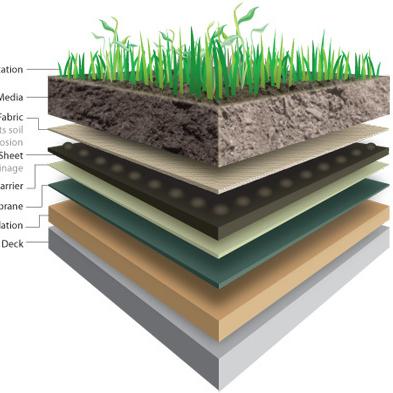Full-Scale Implementation of Groundbreaking SWIFT Program
Hazen and Sawyer is helping HRSD replenish eastern Virginia’s groundwater system, reduce nutrient loading to the Chesapeake Bay, and increase the stability of the region’s overall water supply.
Hazen and Sawyer, in partnership with another firm, provides program management services for the implementation of HRSD’s Sustainable Water Initiative for Tomorrow (SWIFT) program. Secondary effluent from up to seven of HRSD’s existing reclamation plants will be treated at SWIFT facilities and recharged into the Potomac Aquifer System to counter depleting aquifer levels. This approach will significantly reduce nutrient loading to the sensitive Chesapeake Bay and limit saltwater intrusion, reduce land subsidence, and provide a sustainable source of groundwater, which is a necessity for continued economic expansion in the region.

Dwayne Amos is well-versed in the design and construction management of water and wastewater treatment facilities.
Related Topics:
Sustainability Through Innovation
Hazen and Sawyer is providing program management services for the implementation of HRSD’s Sustainable Water Initiative for Tomorrow (SWIFT) program.

Project Outcomes and Benefits
- Replenish eastern Virginia’s groundwater system, increasing the stability of the region’s overall water supply.
- Support Chesapeake Bay restoration by diverting water from disposal to beneficial reuse.
- Reduce the rate of land subsidence, mitigating some of the impact of sea level rise on coastal communities in Hampton Roads.
- The SWIFT concept and Research Center was named winner of the 2018 U.S. Water Prize and 2018 ENR MidAtlantic Best Project Award for Water/Environment.
This full-scale implementation comes after the SWIFT Research Center — a one-mgd pilot facility designed by Hazen — demonstrated that an eight-step, carbon-based advanced treatment process can produce finished water compatible for managed aquifer recharge. Since this is a first-of-its-kind project in Virginia, results from the Research Center were critical for gaining buy-in and support from regulatory agencies, residents, and local environmental groups.
The SWIFT program represents a highly sustainable and innovative approach to solving many of the region’s environmental challenges. An example of the role of innovation in the program’s progress to date is the selection of the water treatment train. By using a “carbon-based” advanced treatment train consisting of ozone, BAC, and GAC, HRSD is able to realize a savings in capital, operations, and maintenance costs when compared to the traditional “full advanced treatment” approach to reuse which utilizes energy-intensive membrane processes to achieve treatment goals. In addition to reducing the life cycle cost for advanced water treatment, the carbon-based treatment train eliminates the need to manage highly concentrated brine reject streams. The carbon-based treatment train was proven to be equally protective of public health through its multi-barrier approach. Further, HRSD is currently conducting testing to validate the performance of the aquifer itself as a treatment barrier.
With the Full-Scale Implementation Program, HRSD intends to recharge 100 mgd of SWIFT water to replenish the aquifer.
The project has won several awards, including the 2018 US Water Prize and the 2018 ENR MidAtlantic Best Project Award for Water/Environment.


